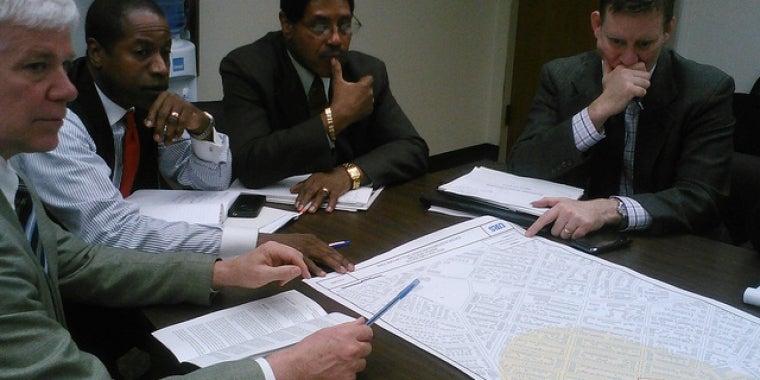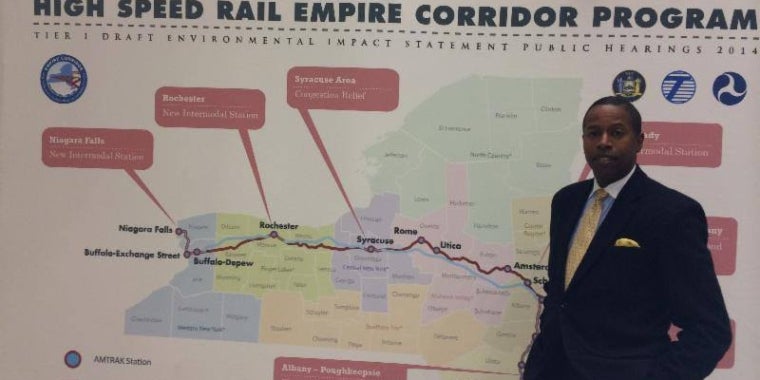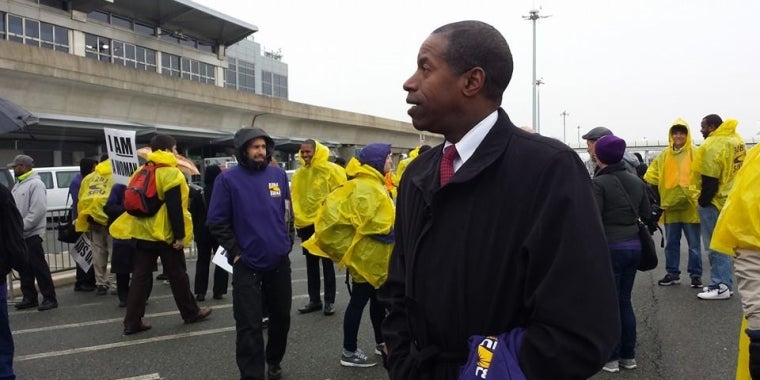
Senator Malcolm A. Smith and Assemblyman Bill Scarborough (D-Jamaica) Join DEP/DEC Officials To Address Flooding in Southeast Queens
Malcolm A. Smith
March 12, 2013
-
ISSUE:
- Environment

(Albany, NY)-Senator Malcolm A. Smith and Assemblyman Bill Scarborough (D-Jamaica) met with Carter Strickland, Commissioner of the city’s Department of Environmental Protection and Joe Martens, Commissioner of the state’s Department of Environmental Conservation to discuss possible remedies for the persistent flooding problem plaguing southeast Queens. Other agency representatives and engineers were also in attendance.
The problem stems from an elevated groundwater table and the lack of a fully constructed sewer system. When Jamaica Water Supply served Southeast Queens it pumped millions of gallons of water out of the ground daily. But when the DEP took over the company in 1996 it stopped utilizing area wells, instead transporting water through tunnels from upstate. That caused the groundwater table to rise by about 30 feet.
Reactivating the wells for the purpose of reducing flooding would be costly - between $300,000 and $500,000 annually just for electricity and maintenance. More money would be needed to treat the water with the appropriate chemicals to make it safe for drinking and that would bring the total to between 3 and 5 million dollars per well. The figures for what it would cost to just extract water and discharge it elsewhere is to be determined by DEC and DEP..
Both Smith and Scarborough have agreed to pursue and set aside funding if a suitable flood remediation plan can be created. The lawmakers and the officials from the DEP and DEC have agreed to work together as a group over the next few months to plan a joint comprehensive strategy.
“This is a very serious matter for homeowners,” Smith said. “I will put a great deal of capital, both political and legislative, to make this happen. But I need the document that will allow me to go to the Mayor and the Governor and whoever else, and say ‘This can help.”
The first step will be for the team to go door-to-door in the community to determine which residents are getting flooded and how much water they are sustaining. With that information, the engineers from both DEP and DEC will be able to conduct further analysis to find out which wells need to be pumped to create the greatest flood relief, and how much it will cost to bring them online.
“We’ll have to be creative because coming up with a solution is not going to be simple,” said DEP Commissioner Carter Strickland. You’ve given us some homework to do.”
The city had planned to start pumping area wells in 2018, to offset losses while the DEP makes repairs to the Delaware Aqueduct, one of three upstate tunnels that carries roughly 50 percent of the city’s water supply. But any flood relief would be temporary as the plan would end once the tunnel is fixed.
The newly established team of Smith, Scarborough and members of the DEP and DEC will meet again in two weeks in Albany to discuss their progress in working towards a solution. They will also develop a strategy to promote public awareness of their door knocking campaign, so that residents will feel more comfortable letting agency representatives into their homes to collect necessary data.



